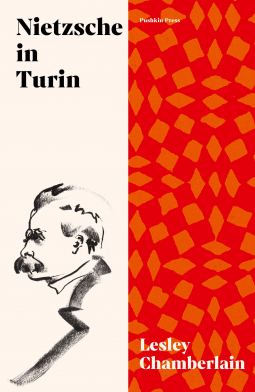
Nietzsche in Turin
The End of the Future
by Lesley Chamberlain
This title was previously available on NetGalley and is now archived.
Send NetGalley books directly to your Kindle or Kindle app
1
To read on a Kindle or Kindle app, please add kindle@netgalley.com as an approved email address to receive files in your Amazon account. Click here for step-by-step instructions.
2
Also find your Kindle email address within your Amazon account, and enter it here.
Pub Date 28 Jun 2022 | Archive Date 8 May 2022
Talking about this book? Use #NietzscheinTurin #NetGalley. More hashtag tips!
Description
In 1888, philosopher Friedrich Nietzsche moved to Turin. This would be the year in which he wrote three of his greatest works: Twilight of the Idols, The Antichrist, and Ecce Homo; it would also be his last year of writing. He suffered a debilitating nervous breakdown in the first days of the following year.
In this probing, elegant biography of that pivotal year, Lesley Chamberlain undoes popular clichés and misconceptions about Nietzsche by offering a deeply complex approach to his character and work.
Focusing as much on Nietzsche's daily habits, anxieties and insecurities as on the development of his philosophy, Nietzsche in Turin offers a uniquely lively portrait of the great thinker, and of the furiously productive days that preceded his decline.
Available Editions
| EDITION | Other Format |
| ISBN | 9781911590460 |
| PRICE | US$19.95 (USD) |
| PAGES | 256 |
Featured Reviews
 Mandy J, Reviewer
Mandy J, Reviewer
Part biography, part critical analysis and commentary on the work and part an attempt to humanise Nietzsche, this well-written and well-researched book explores in particular the last productive year of Nietzsche’s life, which he spent in Turin. During that year he wrote some of his most important works; The Twilight of the Idols, The Antichrist and Ecce Homo. Tragically he suffered a complete nervous breakdown the following year and stopped being able to write. I’m not best qualified to talk about Nietzsche's thinking but I found that the book brought Nietzsche the man to life, and made him a sympathetic character to whom I could relate. Not an easy read when considering Nietzsche’s philosophy but accessible and readable when talking about his daily activities, his friendships, his anxieties and his conflicts.



